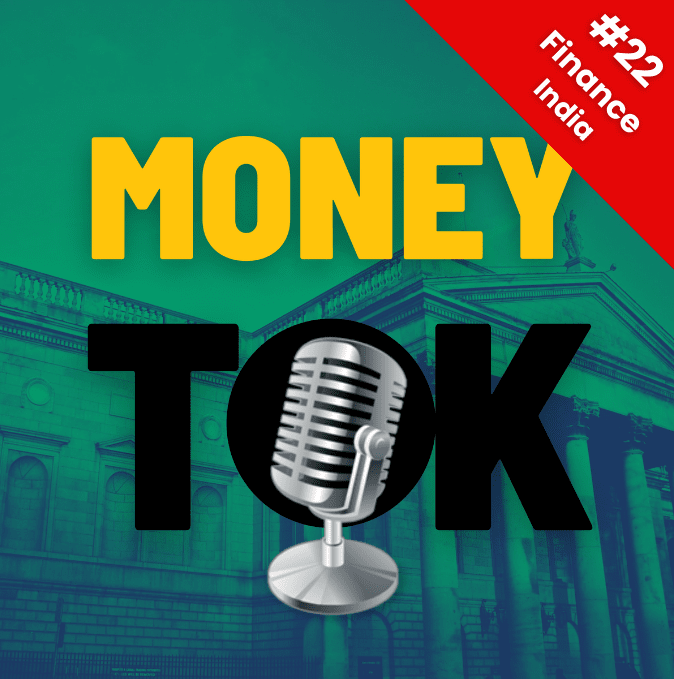MT24 | Neha Desai On Can You Be A Full Time Day Trader
Everyone wants to know how to trade so they can also earn quick money. And this question has become almost omnipresent in the last 18 months, with the unilateral rise in the stock market. Everyone thinks it is the quickest and the most sure-shot way of making money, and that it requires nothing more than opening a trading account and having a shot at it. We are here to discuss how to differentiate between investing and trading, and why they require a very different mindset.
Table of Contents
Discussion Topics: Neha Desai On Can You Be A Full Time Day Trader
- Can you make trading a full-time job?
- What is the alpha and how to generate it?
- High-Frequency Trading and Day Trading
- Don’t let the markets be the boss of you
Transcript: Neha Desai On Can You Be A Full Time Day Trader
Hi, everyone, welcome to another episode of MoneyTok, where we help make personal finance and investing simple and accessible through both my own experience. I’ve been doing this for about 20 years now. This show is about money and wealth creation. And we talk about so many ways of making money, bought retirement planning about stocks, bonds, gold, real estate, crypto, and so many kinds of things.
As a career trader, a question I often get is – can you please tell us how to trade so we can also earn quick money? And this question has become almost omnipresent in the last 18 months, with the unilateral rise in the stock market. Everyone thinks it is the quickest and the most sure-shot way of making money, and that it requires nothing more than opening a trading account and having a shot at it. We are here to discuss how to differentiate between investing and trading, and why they require a very different mindset.
There was a time when stock markets, or trading and traders per se, aroused an aura of mystique and resembled a rich boys club that you desperately wanted admission to but couldn’t. But thanks to the internet revolution, a lot of regulatory overhauls to make the financial industry less opaque and a glut of money, access to markets has become quite a democratic process. You don’t need to have a lot of money, engage a private banker, or post heavy collateral. All it takes is to open an investing account and you can trade virtually any instrument, be it single stocks, commodities, currencies, ETFs, or even cryptocurrencies. It doesn’t require any upfront investment or capital, and trust me when I say this, it can feel extremely exciting to watch prices, and the value of your portfolio moves every second.
So, Neha, you know my views on day trading. I think it is a very high effort for the kind of returns that the average person is likely to generate. That kind of effort is really more like doing it as a real job, rather than something you do on the side. Can you actually make this a full-time job?
The key to making money consistently from trading is to answer the question. What is your edge? Even the most seasoned money managers struggle to consistently generate alpha unless they have some advantage.
Is that why they are called alpha males?
No, Amit. Alpha means the incremental returns you might be able to generate over and above what is returned by the benchmark index. So for example for US stocks, the benchmark would be the S&P 500 and alpha would be the difference between the % returns made by an equity trader vs the returns generated by the S&P 500.
Ah ok, got it. So it’s basically a measure of whether the money manager is actually delivering any value through their expertise/ knowledge.
Yes exactly. The biggest advantage in the market is information. If you know something that others don’t, you have the edge. If you know for whatever reason, that there is going to be a huge shortfall of wheat, you will buy that commodity in the market, to make money from the eventual price gain that the imbalance in demand and supply will create.
Having insider information on a company, and trading on it is a strict NO NO. and I cannot emphasise this enough. It is a punishable offense. That’s why company CEOs, and board members have a blackout period for trading their own company stocks around the quarterly results time. The idea is that no one should have an information advantage or disadvantage when trading stock.
OK, so if information is the key advantage and nobody is allowed to trade on it then what’s the value of these experts? How do they generate any alpha?
So these people use sources other than insider information. There are various tools. A lot of research, gleaned trends from data, and projected output by trend analysis. There is the fundamental or macro analysis and there is a technical analysis done by just looking at trading patterns and points. People invest substantial time and effort in creating this data and information base. They can go to great lengths, for example, someone might have developed methods to use satellite imagery in order to guesstimate the supply chain situation in China and hence project GDP growth.
On a more down-to-earth basis, no pun intended, stock analysts talk to companies to understand the business model and project company results. Or bank research analysts do in-depth research into macroeconomic trends or even company-specific research. There are also dedicated technical analysts who will tell you where to enter a trade, where to put a stop loss or take profit etc based on charts.
And all this – or at least many of the tools – is actually available in some form to everyone on the various trading platforms. But, the important thing is, it is available to everyone. What you are reading, the person sitting next to you is too. And therefore, you are back to square one. You have no edge. If you think you can read up on all these generically available reports and trades, you are in the same position as any tom dick and Harry.
Exactly – it’s like going to the casino. You can win sometimes, but the house always wins on average.
In fact with the advent of HFTs or high-frequency trading, the odds are even more stacked against a daytime trader with no edge. The retail platform that one will use like robin hood or interactive broker, will place your orders on the exchange, where it can be seen by the smart algorithms designed by these funds. They can then use this order ladder to ‘front run’ the orders, i.e. buy ahead of you if you are looking to buy, and therefore jack up your entry price, and can see the cluster of orders around the popular stop losses, and actually trigger those stops. The machines are actually reading the orders and doing the opposite of what you want.
This behavior has come under a lot of regulatory scrutiny but so far is still really the wild wild west of trading.
Yes, exactly. And a lot of this came out as news and caused a ruckus but people still want to trade. So how should they do it, if they really want to?
Well, we still like going to the casino and trying the slot, in the hope of hitting that one-in-a-million jackpot. It is exhilarating and a total adrenaline shot to see a trade that has immediately gone in your favor. You feel validated and excited. But know that this also takes a toll. What the market giveth, it also taketh away.
There will be times you will feel super excited about having got a trade right, and there will be times when you will feel the sinking feeling in your stomach when the trade goes against you. The roller coaster ride is not for everyone. Trust me, being a trader for 15 years, I have seen enough cases of burnout around me.
And the people who survive this roller coaster are those who can suppress the very basic emotions that get triggered on this ride. Greed and fear. Knowing when to take your chips off the table when you are having a good run, and equally importantly when to stomach a loss and get out. Do not make it personal. A right or wrong trade does not reflect your intellect or your market prowess. But your reaction to it will decide your longevity.
When the market is going unidirectionally up as it has been in the last 18 months, it is easy to feel invincible. You just buy anything and see it go up in value. That is not day trading. Day trading is looking at markets every day, and deciding what you want to buy or sell today with a short-term view in mind. It also calls for the supreme discipline of defining stops and taking profits. Even the best traders at best get a 70-30 win ratio, and more generally it is a 50-50 game. The only way to therefore still make money with those odds is to make more money the times you are right than lose when you are wrong. And if you get stopped, have a memory of a baseball player. Forget what happened in the last ball or trade. Don’t get emotionally attached to any trade. Once you are out of it, it is done. Don’t be tempted to go back in in the hope you will be right this time. I cannot emphasise this point enough
And finally, never ever bet your house on this. Keep aside a portion of capital that you know, even if it goes to 0, you will be okay with it. Don’t let a bad bet in the markets ruin your mental and financial sanity.
Words to live by, Neha. Control your emotions. Have a system. Never make it personal. Be the boss of the market. Don’t let the markets be the boss of you.
Amazing! I think we’ve probably come to the end of our time for today. So Neha, good chatting as usual. And everyone, thanks for tuning in. We were Neha and Amit with MoneyTok and we’ll see you next time.



